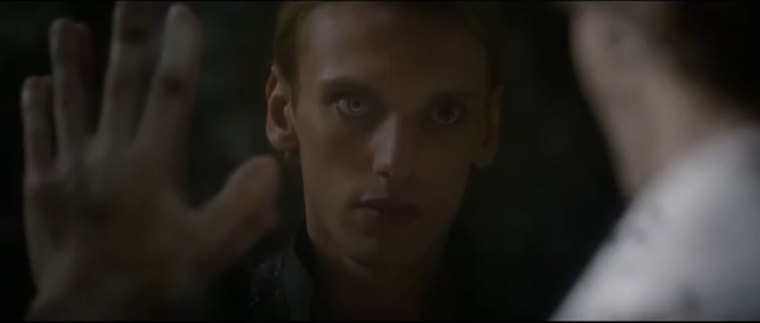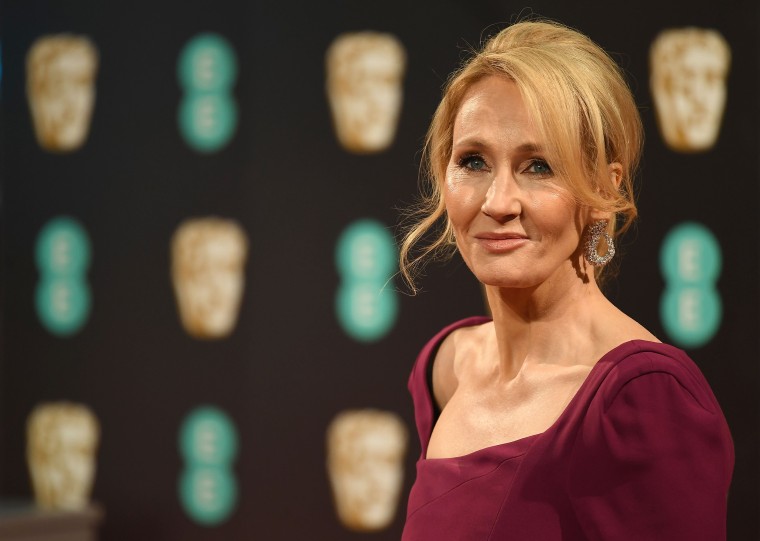Even the best creators can have a hard time knowing when to stop. The sequel trap has tripped up many a beloved series, written and cinematic, but none so much as in the world of fantasy, where both George Lucas’ “Star Wars” and Peter Jackson’s “The Lord of The Rings” committed prequel sins so great they nearly killed the franchises.
J.K. Rowling’s “Wizarding World” is now in the middle of the same reckoning. “Fantastic Beasts: The Crimes of Grindelwald” was heavily panned, and the third has pushed back it release date. But author-turned-billionaire-turned cultural commentator Rowling’s need to fill in details which aren’t depicted in either her books or her movies has made this slow-rolling disaster worse in ways neither Lucas nor Jackson ever managed.
The sequel trap has tripped up many a beloved series, written and cinematic, but none so much as in the world of fantasy.
The “Fantastic Beasts” film pentalogy is a somewhat controversial follow-up to the billion-dollar “Harry Potter” franchise (now rebranded by Warner Brothers as the “Wizarding World.”) Prior to release, the series was billed as a trilogy, focused on a gentle Hufflepuff and his animals. But that turned out to be quite the undersell. Instead the series, which will ultimately include five movies, covers the prelude to the infamous historical showdown between Gellert Grindelwald and Albus Dumbledore, a battle referenced more than a few times in the Potter novels.
SIGN UP FOR THE THINK WEEKLY NEWSLETTER HERE
But what caused this massive schism? And was it because, as has long been rumored by both fans and Rowling herself, the two were once queer lovers? Neither the books nor movies have given many concrete details. And Rowling’s unwillingness or inability to spell it out is starting to cause problems, even as she continues to hint at the LGBT undertones in her work.
Since the first series of “Potter” books ended in 2007, Rowling has often felt the need to add details about her characters after the fact. Her first and perhaps most well-known foray into this revisionism was her assertion that Dumbledore, Harry’s beloved schoolmaster, was gay. Coming practically weeks after the final book hit shelves, Rowling confirmed what many fans had already guessed during a talk at Carnegie Hall. But that’s all the relationship was: guesswork and subtext.
Now she’s giving fans an entire set of movies, which are, at their heart, based on this revealed relationship. When the relationship between Dumbledore and Grindelwald is a central plot-line, with Dumbledore unwilling to fight his former lover because of their former relationship, it seems bizarre not to explain exactly what's going on.
And yet, this is exactly what has happened. Despite casting teenage versions of Dumbledore and Grindelwald, director David Yates was quick to state there would be “no explicit relationship” in interviews. He also initially attempted to downplay any romance with the idea the characters were “in love with each other’s ideas,” a statement he later had to backtrack. Instead, the movie once again left it all as subtext. Meanwhile, Rowling insists the whole controversy has been overblown.
Back in 2007, the world was still a different place. Only Massachusetts extended marriage rights to same-sex couples, and the GOP was happily using anti-same sex marriage amendments to inspire its base. The U.K. was no better. The idea of tut-tutting over the tragedy of Dumbledore’s “love that dared not speak its name,” was seen as well, progressive. If only the world were more accepting of these things! It's so sad we can do nothing! But by the time the first “Fantastic Beasts” film arrived, gay marriage was legal in both countries and society was shifting leftward. So why has Rowling remained to reluctant to display Dumbledore’s relationship onscreen?
Everything about the relationship between Dumbledore and Grindelwald remains vague, exemplified by such unsatisfactory touches as a single, longing glance in a mirror in “The Crimes of Grindelwald.” And Rowling’s newest comments, which are part of the film’s Blu-ray “extras,” only serve to pour salt in the wound.

"Their relationship was incredibly intense. It was passionate, and it was a love relationship,” Rowling said. “But as happens in any relationship, gay or straight or whatever label we want to put on it, one never knows really what the other person is feeling. You can’t know, you can believe you know. So, I’m less interested in the sexual side — though I believe there is a sexual dimension to this relationship — than I am in the sense of the emotions they felt for each other, which ultimately is the most fascinating thing about all human relationship."
To be fair, Rowling’s ability to write sexual relationships is stunted at best, even where straight characters are concerned. (This is, relatedly, why the series has such a devoted “fanfic” culture.) But at least those relationships exist. Pages are spent documenting Harry’s crushes on fellow (female) students.
To be fair, Rowling’s ability to write sexual relationships is stunted at best, even where straight characters are concerned.
When Rowling first “outed” Dumbledore in 2007, it was mostly seen as a win for diversity, but as the years have passed more and more people have started wondering if she isn’t simply trying to get credit for diverse characters she didn’t really create. As the “Fantastic Beasts” series continues to unfold, those accusations feel increasingly accurate. Has Rowling committed the classic writer crime of telling and not showing?
Perhaps if the “Fantastic Beasts” series had been a set of 800-page novels, instead of a set of 120-page scripts, Rowling’s subtle hints could have built to something clearer. But her insistence that she is merely trying to avoid getting “uncomfortably explicit” suggests this isn’t really an issue of space. Rowling clearly saw nothing “explicit” in have Ron snog both Lavender Brown and Hermione to the point that Harry had to turn away in embarrassment.
In 2019, there’s no excuse for such conservative hand-wringing. Rowling taught her readers to embrace an open, progressive society, and a decade later, those readers are try to remake this world in that image. Now it’s her turn.

